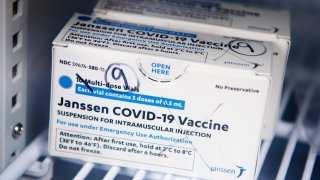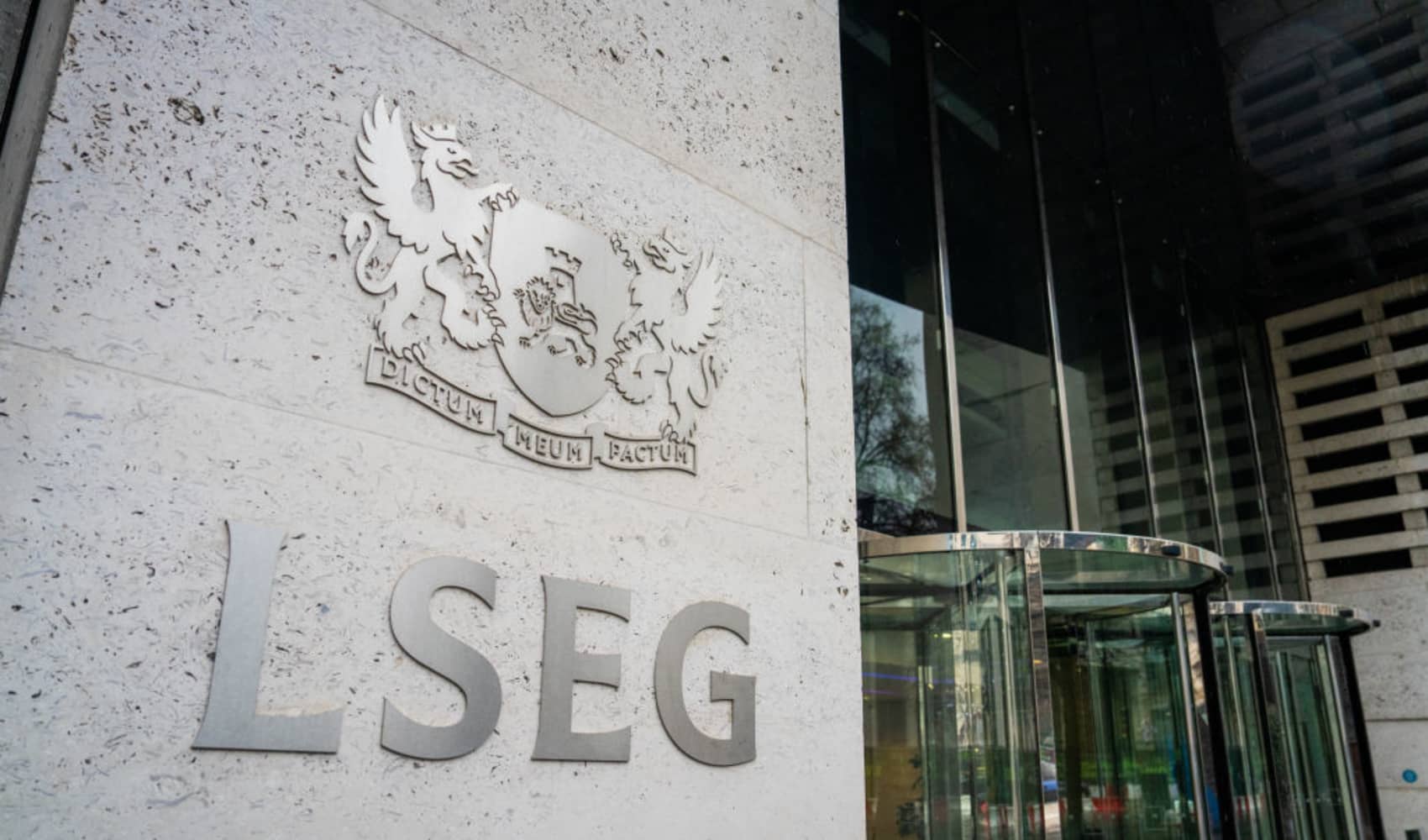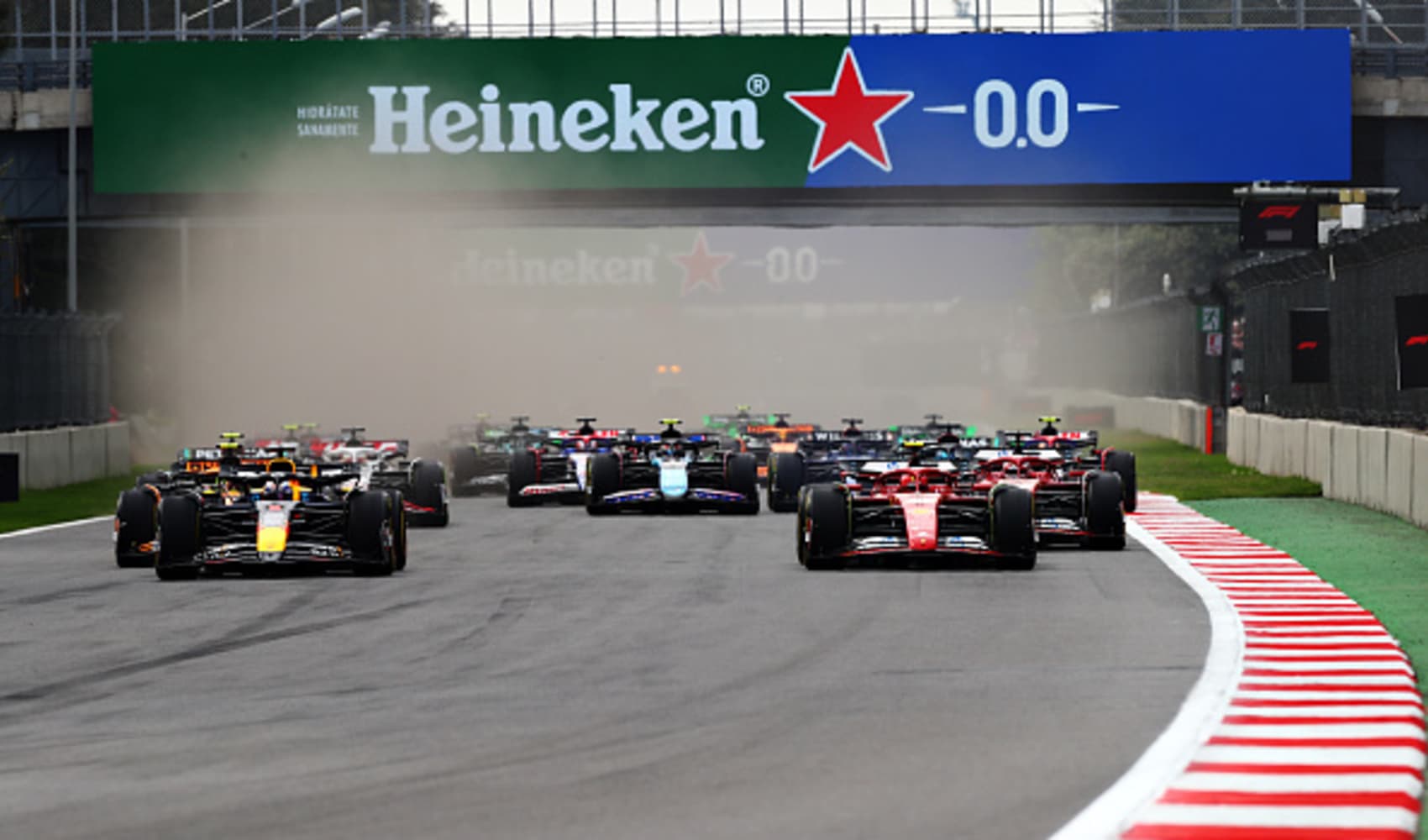
A box of Johnson & Johnson’s Janssen COVID-19 vaccine doses are pictured at Grubb’s Pharmacy on Capitol Hill on Monday, April 12, 2021.
- The FDA is asking states to temporarily halt the use of J&J’s Covid-19 vaccine after six women in the U.S. developed a rare blood-clotting disorder.
- “I think this is going to be a blip on the calendar in terms of getting Americans vaccinated,” said Dr. Ashish Jha. “I don't think it's going to affect the timeline at all.”
- Jha explained that the cautionary measures were proof that “the system is working,” and that the government’s swift action may counter vaccine hesitancy.
America's temporary pause in the use of Johnson & Johnson's single-dose Covid-19 vaccine will not interfere with President Joe Biden's goal of getting the nation to some semblance of normalcy by Independence Day, the dean of Brown University's School of Public Health said Tuesday.
"I think this is going to be a blip on the calendar in terms of getting Americans vaccinated," said Dr. Ashish Jha. "I don't think it's going to affect the timeline at all."
Get top local stories in San Diego delivered to you every morning. >Sign up for NBC San Diego's News Headlines newsletter.
Federal health agencies advised Tuesday that the U.S. should temporarily pause the use of J&J's single-dose vaccine after six women out of the roughly 6.9 million people who received the shot reported getting severe blood clots. The blood clots occurred in women between the ages of 18 and 48. One woman died and another is in critical condition. They all developed symptoms 6 to 13 days after getting the shot, according to the Centers for Disease Control and Prevention and Food and Drug Administration.
Jha told CNBC's "The News with Shepard Smith" that the cautionary measures were proof that "the system is working," and that the government's swift action may counter vaccine hesitancy.
"My hope is that it will actually build confidence in people that we don't take adverse events lightly, and that we investigate them, and that we really are making sure these vaccines are very, very safe."
Money Report
Anthony Fauci, director of the National Institute of Allergy and Infectious Diseases, reaffirmed that the pause comes "out of an abundance of caution" and that it will give health officials time to investigate.
"You want to make sure that safety is the important issue here," Fauci said during a White House press briefing Tuesday. "We are totally aware that this is a very rare event. We want to get this worked out as quickly as we possibly can."
Jha told host Shepard Smith that he "expects the pause to last days, not much longer," and echoed Fauci's assertion on the rarity of the blood clots.
"The key point here is that this is an incredibly rare, adverse event," Jha said. "It's not going to affect very many people at all, and I just think, out of an abundance of caution, we're just taking a pause to see what else we can find out about it."






